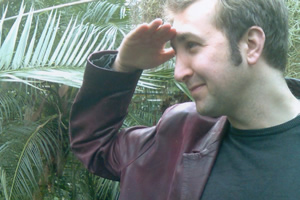French farce: Ian Moore on moving from stand-up to novel writing interview
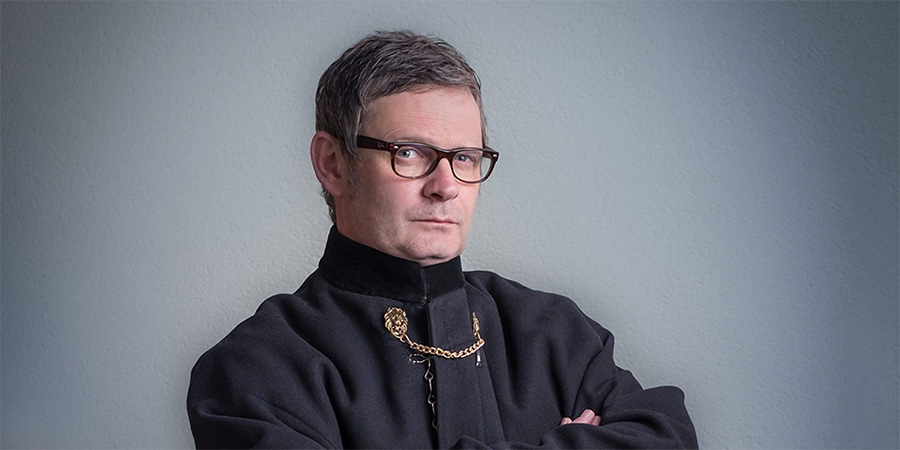
Ian Moore is unique in comedy, a respected veteran of the live circuit who commutes to UK gigs from his home in the Loire Valley in France. Further set apart by his sharp mod style, he has written about his life with his half-French wife, three children and menagerie of truculent animals, opening a B&B and making chutney, in two memoirs, 2013's À La Mod and 2014's C'est Modnifique!
Now, as he publishes his comic crime novel, Death and Croissants, the first in a trilogy, and belatedly returns to gigging after coronavirus, he offers some advice to fellow comics on travel, carving a niche for yourself, "peacocking", performing gigs for the troops, pissing off the IRA and shunning Edinburgh. Oh, and learning to master your temper when you just want to smack a heckler on the head with your microphone...
How has Brexit affected you?
It hasn't been as bad for me since I got French nationality, which was something I started working on the day after the referendum vote. I just knew with the personalities involved and the lies said it would be horrendous. To continue travelling, I needed a British passport to get into the UK and a French passport to get out of it. Otherwise, I could see all these touring issues, all of those visas. I knew all that was coming four or five years ago but it took me two years to get my nationality sorted. Brexit's less of an issue now but I still stomp around the house angry and frustrated.
Do you think it will really impact acts performing around Europe?
Seeing Roger Daltrey signing that letter from all of those musicians, "this is beyond the pale and we can't tour". He was a very loud Brexiteer saying nothing would change, "we toured Europe before the EU". It was just so obvious and depressing that this was going to happen. The Taking The Piste gigs in the Alps, [founder] Richard [Lett] said to me: "where am I going to get all the acts?" It's very difficult now. I can't do all the gigs!
Are Brexit and coronavirus accelerating your transition from stand-up to novelist?
Yeah. It's not just Brexit and Covid though, but my own health, and to a certain extent, sanity. Gigging for me is a militaristic operation. Everything is plotted down to the minute and travel is tiring. I know it's not a great distance to the UK. But when you travel at the cheapest times between countries, you're going in the middle of the night and you're waking in the middle of the night. For years, there was at least one night a week where I wouldn't get any sleep because I was travelling. So it was inevitable. But Covid has certainly brought this forward. I've lived here 16 years now and this is by far the longest I've been here without going anywhere else.
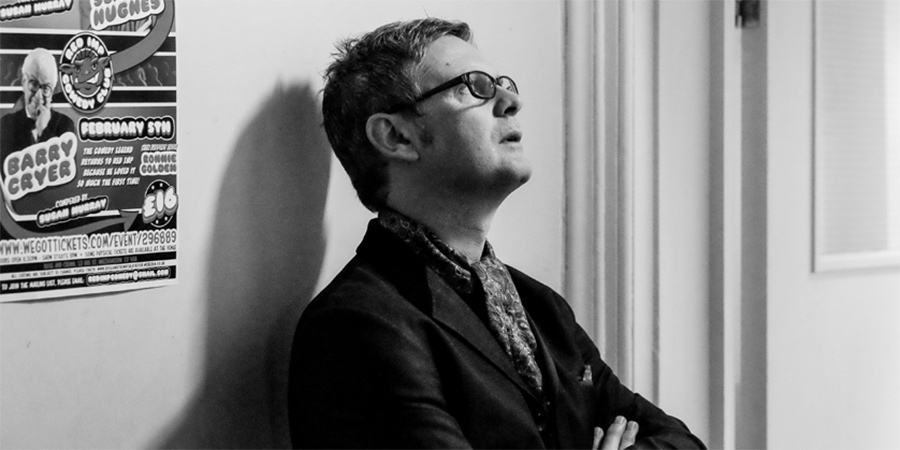
Your memoirs are cautionary tales for comics aren't they?
I know at least one booker who uses me as an example to newer acts who might ring up on the day and say "well, I cant make it because the train takes too long", giving excuses for not travelling around the country. And he always replies: "Have you heard of Ian Moore? He never cancels a gig, never fails to turn up and yet he does this travelling all the time". So it is a cautionary tale. It's not one I would advise to be honest, its just too hard.
Yet you write of the joy of flâneuring, that you get to simply wander around so many places.
Yeah, and you have to. The way I've got through all the travelling is to build up a fictional persona - that I'm a spy or whatever, that I go to a place, walk around. Strut or peacock, because of the way I dress.
It does give you an extra insight and I like to walk on stage with a couple of local things that I've picked up myself, not read on Wikipedia. That makes a difference. It ingratiates you with an audience if you can show that you know a bit more about them. Obviously, I've been doing it for so long now that I know just about everywhere really well. So I've got lots of material wherever I go. I like the idea of travelling. The fact that I've done possibly too much shouldn't detract from the fact that I love just going to places and wandering around.
In lockdown have you found the memories flooding back?
Absolutely. Last year I did something I always wanted to do, which was gig in New York. Four or five days on my own out there, it was magical, utterly magical. And when that anniversary comes up, it hits you hard. I love being at home and I'm really lucky to have home where it is. But yeah, I miss the romance of walking around places on your own with an imagination. And looking upwards, particularly in New York, you see film sets wherever you go. I've actually found that harder than not gigging. Sometimes it's the travel that you miss rather than the gig, which sounds weird.
But you're not a road dog comedian, always touring, living out of a suitcase...
I haven't got the energy for that.
You mentioned peacocking. With your mod look and reputation as the one of the best dressed comics on the circuit, are you surprised that more stand-ups don't put greater thought into their appearance?
I'm constantly surprised by it. Part of being a circuit comic, you're going out when people are celebrating. Just seeing someone shuffle on with unironed jeans and trainers undone, for me that's not a night out. And I know that's kind of an old-fashioned idea of showbiz. But for me it's important. I dress up all the time anyway. I never wear unironed jeans.
But if you've got an image that you've worked on, you've won half the battle when you go on stage because people can already bracket it, even if you come out of it later. You have to let people know you've made some kind of effort. Otherwise the battle to win them over in the first few minutes, you're starting from further back is my logic. It took me a long time to go as full mod as I do on stage because I was quite nervous of doing that as an open spot. But once I did, the authority it gave me just made the job slightly easier.
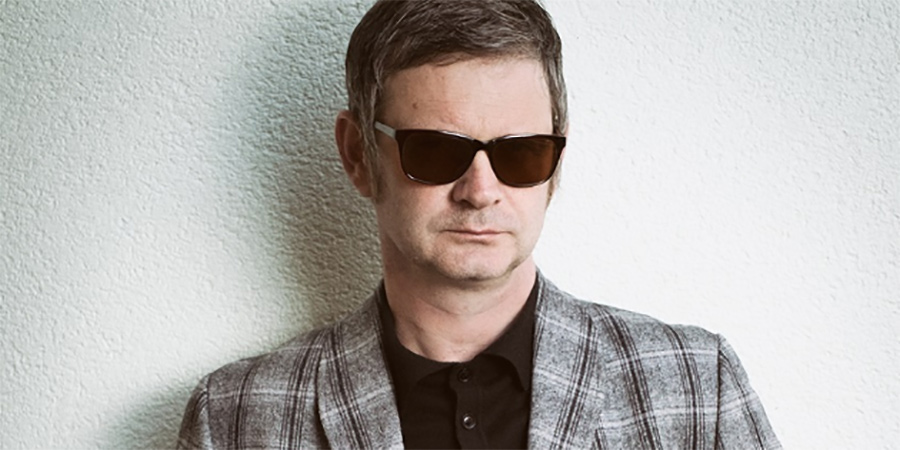
You've supported some big names touring huge venues. But it doesn't seem like your personal ambition ever tended that way. Have you never wanted to leave the stand-up circuit?
No, it was very odd with me. I didn't ever expect to make any money out of stand-up, it was never a career thing. I fell completely into it. I went to a show at the Banana Cabaret with a friend, she asked what I thought and I said, "well, it was alright, I could do that". Typical braggart, blokey stuff. Then she rang me a month later and said "right, put your money where your mouth is, I've booked you five minutes". And it literally just went from there.
Still, I never expected a career. For the first ten years, I was constantly waiting to be tapped on the shoulder. "Come on, you've had a good run but you're a fraud". It was only later I realised I was actually good. And it was almost too late then to try and get bigger than that.
Because I couldn't stand the idea of [the] Edinburgh [Fringe]. I wrote a show in 2001 and Addison Cresswell, my agent at the time at Off The Kerb, rang me up and said, "well, you know you're going to lose a lot of money don't you?" And I didn't understand that. I couldn't understand why the meat market element of Edinburgh was so all important. And I rebelled against it. I've still never done a one-man show there. I could go next year, go for the best newcomer award!
So you established yourself at the peak of the circuit, when it was its most financially lucrative?
I did. I got sucked into the Jongleurs thing. We'd just moved, got a mortgage, had a young child - why take the risk to lose ten grand when I needed the money? I was genuinely fearful of failing, of being shown up for being in the wrong profession. And it was too late when I realised that I wasn't. And really, all I ever wanted out of stand-up was to make enough of a name to sell my writing.
You just want to write comic fiction?
I think that was it. This area of France where we now live, I first came here in 1990 with my then-girlfriend, now my wife. The first week I was here, I just said: "Do you know what? I just want to retire here and write light, undemanding comic novels". And that's how it's turned out, stand-up has been great for facilitating it. I'm finally getting what I really wanted out of life, professionally anyway.
And I love stand-up. I've had moments on stage that I don't think I could ever surpass. But there have been other moments, when you're away in a town you've been away in 50-odd times in your career, you're having to kill the day wandering around the hotel, and there's no greater buzz than going to Waterstones and seeing your book there. That became the bigger buzz. No-one can take that away. It's there.
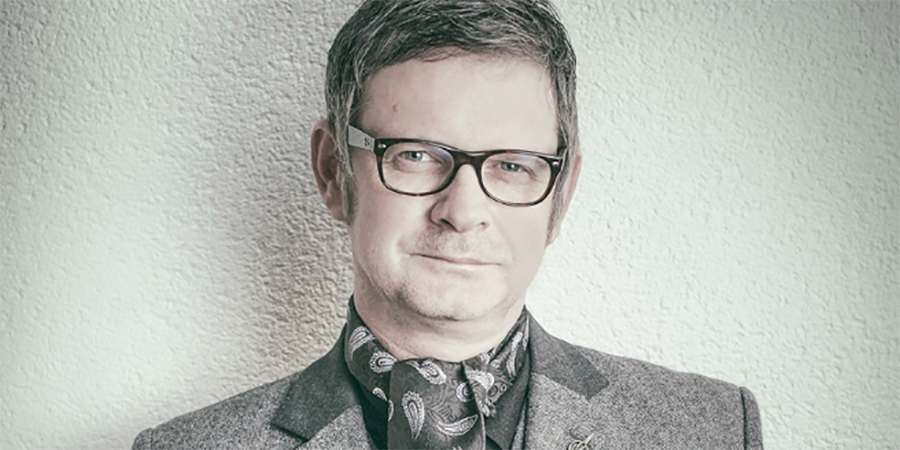
Was there ever a point when it got so tough commuting from France, making ends meet, that you and your wife considered coming back to the UK or maybe getting more conventional jobs?
No, absolutely not. There have been times where we've thought "well, how are we going to afford this?" I remember when I was still with Off The Kerb and said "look, I need corporate gigs, if I don't get corporate work, I can't afford to do this anymore". And that's why I left them in the end. But I never ever thought that we would move back. There would always be something. If I have to work on a building site or get a shop job or whatever, I would do it. I mean, the writing came just at the right time, I have to say that. But I was never going to go back.
How did the publishing deal for your first book come about?
It was quite odd. It was a day of utter chaos here, just with animals, with kids. It was so ridiculous. And later that day I was on a Ryanair flight to go to a gig somewhere, probably London if it was Ryanair. And I wrote it all down just to try and put some semblance of order on it. I typed it up, put it on Facebook as a long post. Then somebody said you should do this regularly, why don't you do a blog? So I started doing that, it fell in front of the right eyes on Twitter and a publisher approached me. It was all very simple. It fell into place.
Did writing the blog help you develop material?
I started in 2010, so that's a lot of material. To start with, it's just a good way of organising it for your own head. Nobody else does material about the goats they own running away or chutney making in rural France. It helps process it but there's also a cathartic effect that helps your sanity.
The flip side of that, and why I stopped doing the blog last year, is I had started looking for problems to make them funny, rather than just reporting on what was going on. That had a detrimental effect on my health because I then became pressured searching for the material. It just felt wrong. I don't miss it at the moment and it also means I get a lot of other work done.
Have you ever discussed with your wife about how much of your family life you share?
She has always approved everything. Partly because she would always correct my spelling and punctuation, which she gets off on. But there was always a thing of - "Did I go too far here? Do you want that out there?"
Very little has ever been cut but it's courtesy really. I've never published a blog or anything about us without her having final approval. That's just fair. I'm struggling to think of any instances where she did ask for something to be taken out. We go back to them every now and then if we want to remember something, it's actually quite useful.
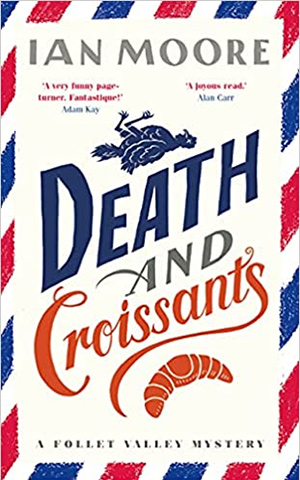
Death and Croissants is about a middle-aged English B&B owner in the Loire Valley with hens, which sounds familiar...
The thing is, I'd done two books about me and the family in France and I'd tried to write a darker thriller ...
Playing The Martyr [in 2018]?
Yes, which was pretty good but I've had to withdraw it from sale as there might be some publishing interest in it. But I didn't know if I wanted to keep writing about me in France. So I thought I'd combine the two with this guy who's not a great distance from me as a person. But he's thrust into these comic escapades and crime. It just seemed a way of combining the two which would be fun to write and hopefully fun to read, because there's still not a lot of crime humour around. The audiences for a more noir thriller are possibly more demanding than you'd get for the cosier side, certainly with humour. It's a genre that's not as tapped as it could be.
Still, the likes of Richard Osman and former stand-ups like Mark Billingham and Caimh McDonnell are bestselling crime novelists now. Are you tempted to emulate Billingham and name your victims after people you know, fellow comics perhaps?
I'm not looking at other comics. When I come up with a character, I like to base it on a picture from old films or television. Though actually, one of the characters in the second book is based physically on Ricky Grover. It's certainly not a vengeance thing.
The only ones that are revenge are people I've met around here that I don't particularly get on with. They're kind of in it but whether they'll spot themselves, I don't know. Or, you know, family. French family who've annoyed me over the years. They're kind of vaguely in the storyline. I'm trying to avoid going after people. When I run out of ideas I might. When I'm completely out of comedy I might really turn.
And you're currently writing the second novel in the trilogy?
Well, I went back to the first as there were some things I needed to change so there are connections with the second. Because I'm establishing this fictional Follet Valley within the Loire Valley, I want there to be threads that go through them. But looking into the future, there's never a great deal of change in the Loire Valley. There are no vast industries moving into the area. It's still cheese and wine and chateaus.
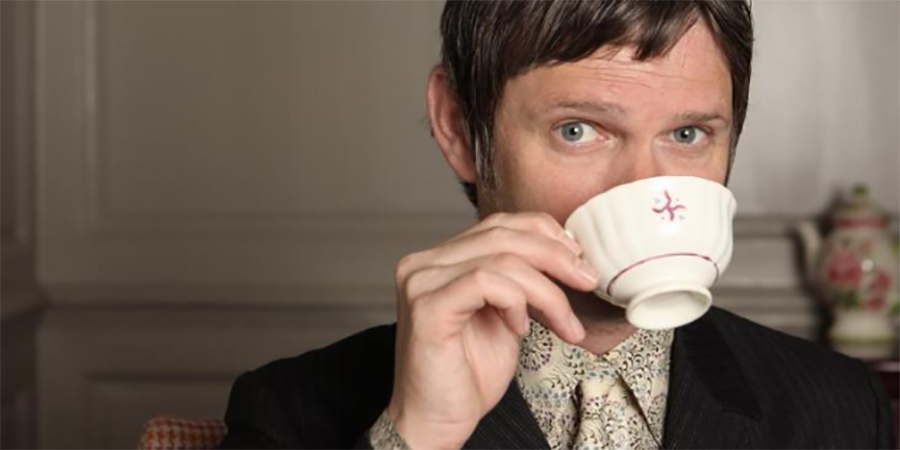
You're not a writerly stand-up. You develop your material by walking around and saying it out loud, rather than writing it down. Is prose writing a challenge?
Yeah, I mean it is very different. Prose writing is more disciplined. What I found after being a stand-up for a while was that the best times for writing were after a gig. You'd work out a lot of material, then because your mind was still in the rhythm of the gig, you'd almost be thinking that way, if you see what I mean. Any subject that came into your head, you'd almost be seeing it straightaway as a source of material, rather than forcing yourself to do so when you're not in gig mode.
Also, when I write stand-up in my office where I am now, it's in a gabled roof space, I've got chalkboards either side and I find it much easier to write stand-up walking along. You can pace a joke, get the right kind of rhythm, which I couldn't do when I sat at a desk and wrote it out, which is what I did when I first started.
Then, I had to adapt it for the stage. Now, it's almost completely stage-ready before I've used it. It's a very different process, two very different mindsets. I'm very lucky with the prose as well. From 16 years of this kind of travelling, I can create a bubble around myself and write anywhere. It doesn't matter where I am, I can just sit down, get the laptop out. Nothing interferes with that bubble.
So would you advise stand-ups or novelists to have kids and adopt animals?
Ruthlessly use your family as much as you possibly can if it's going to help you in any way get material. But live life, don't force it. If you've the right mentality, then there is so much out there, you don't have to force it. I don't know how comics can sit down with a blank piece of paper and go "well, I need to write 15 minutes of material". I can't do that because I have to go out and see something that will suggest material to me.
Are you proud of having such a singular career and are other comics interested in copying it?
I've had plenty of comics come out here and they get it, why I do this ridiculous commute. But good mates like that have also seen me absolutely broken at the end of a week's travelling and gigs and know that it's mental, it's a crazy lifestyle. I sold it to my wife on the basis that it would only ever be for five years and after that, my writing would have taken over. But that never happened. So there are people who are jealous of it. But when they actually see how difficult it is, less so.
Still, it gives me a unique perspective and material. When you're doing two or three gigs a night and have to close one, you don't have to ask if any of the other comics have done this or that particular piece of material. Because I know that nobody else is talking about goats.
It's a great niche, being something like the Europe correspondent on Matt Forde's Unspun...
Exactly. And to be honest, I was shocked that I wasn't used more in that regard. I was doing a Brexit blog every week that was funny and got lots of followers but I only ever did a couple of programmes about Brexit itself.
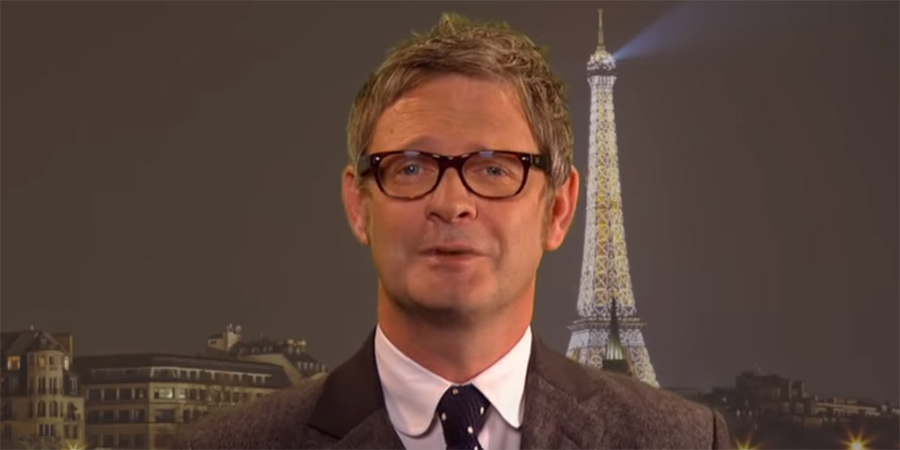
It was nice to do the odd one or two but I honestly thought I would be used more. I don't know whether it wasn't seen as a comic thing, certainly more famous comedians had their take on it. But I would have thought I was in a perfect position and never really got exploited.
Will you continue with your portfolio career or will you focus on novel writing now?
Covid has taught me that I can't go back to doing as much travel as I did. I've got rheumatoid arthritis now, so from a physical perspective, I can't. But I've learned that I have to do some travelling. It's now so much in my blood that I have to have it, have something planned. If that's gigs, then great. But if not, I've got some incredible memories of stand-up.
I was compere at The Comedy Store on the night of the 2012 Olympics opening ceremony and it felt such an honour to have that role in the city at that time. I don't think I could ever give it up 100% but I can't go back to doing it as often as I was pre-Covid. The books have come at just the right time. Assuming that I actually make some money out of them.
I understand that you wrote a sitcom based on your memoirs but Sky told you it was too far-fetched...
I know! It was actually Caimh and I that put together that sitcom. To get that feedback is just not credible. If that's not a postscript on the last 16 years, I don't know what is. It is completely nuts. It may not seem believable but it has worked for me.
Would you consider adapting the novels for television?
Yeah, definitely. They're always written with visuals in mind. Certainly, the fiction books are because they're all set in France. It's a visually stunning area, you can't not. People who've read Death and Croissants so far say it's perfect Sunday evening fare. It's light and undemanding, they're old-fashioned capers and romps, funny as well. So I certainly hope so.
Are you treated as an oracle on France and travelling by friends?
Yes. And on cheese. People tell me they're going on holiday in the south and ask which route would be best to go if you've got a dog. My specialist subject on Mastermind would be commuting between the UK and France. I know all the timetables, airlines, where you want to go and what time. It's become like a sixth sense, I can immediately plot a journey. And so people get in contact quite a lot about that. Normally though, they're surreptitiously trying to ask if they can come and visit.
Do you have any particular tips? Preparation seems like the main thing.
Yeah, but I still make massive errors sometimes. Probably about six months before lockdown, I'd managed to rush across Paris and amazingly made this train which I had no right to make. I got in, collapsed and saw the train on the other platform pulling out. I'd rushed, got there on time but jumped on the wrong train. Things like that happen a lot and the secret is to expect the worst, because no matter how much you've prepared, it will happen.
If there's one specific tip, it would be with Eurostar. Not many people know but via their app, you can change your seat right up until the train's left. So I always, always end up having two seats to myself. And that is glorious. The smallest victories travelling just mean so much.
In one of the memoirs you recount your tentative first steps performing in French. Where have you got to with that and is there more stand-up in France now?
There is more stand-up in France now. Interestingly, it's driven very differently to how the stand-up circuit began in the UK, in that it's driven, at least within Paris and the larger cities, by North Africans and minorities.
Just like rap in the early days, it's a rebellious form of expression because it's not something that's come through a French tradition if you like. And it's all the better for it because it's not just more white blokes, which is tedious frankly. So there is a kind of circuit growing alongside more marquee names who can sell out bigger theatres. But that's quite an old-fashioned style of stand-up. Whereas the newer guys have a style we would recognise in the UK. More confrontational, less physical, more wordy.
And are you part of that?
No, not really. I made the decision that I didn't want to do stand-up over here. I'd still have to travel anyway and it just takes so much out of me doing it in French. My French is never going to be as good as my English, so my responses to situations are never going to be as sharp or as quick. I'd always be stuck in second gear on stage. It's also what has held me back learning French as a language. I'm very good now but it's taken me so long because I couldn't get my personality across as quickly as I wanted. I really struggled with that gigging in French.
And in fact, as I say in one of my books, the comedian who went on after me at my first French gig, she tried joking with the audience by saying "damn, that guy, how did you understand his accent?" And they booed her. They thought I was a character! My stumbling, muttering appalling accent that I'd created specifically for the gig rather than actually me. And I can't have that, I have to be more authoritative than that.
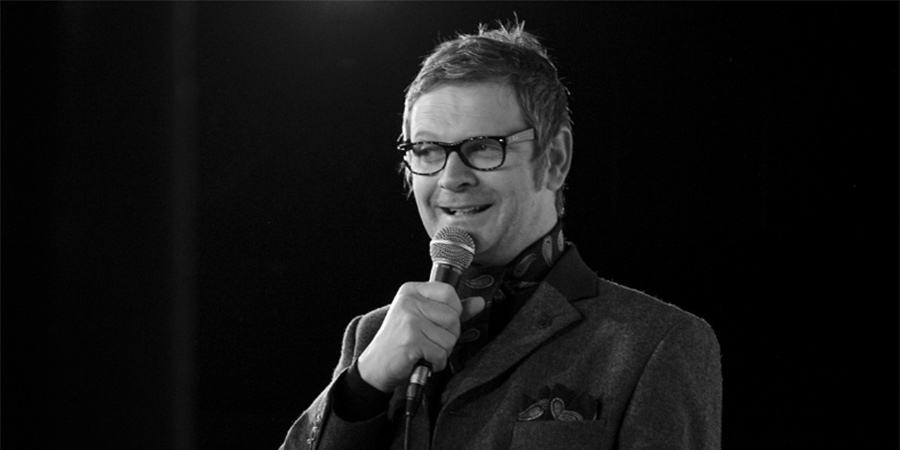
The memoirs also mention in passing some of the scarier situations you've ended up in while gigging, including an electrical storm in Manila...
Yeah, that was me and Mike Gunn. We were flying from Shanghai. We're both seasoned travellers but we're looking through the window, looking at each other and thinking, we're not coming through this are we? We were both convinced we were going to die. It was absolutely horrible. And Mike's not the cheeriest bloke to be around.
And being threatened by the IRA...
That was in Manchester, a sportsman's dinner. They'd asked for an Irish comedian, so why I ended up getting the job I've no idea. I was with my son. At the time he wanted to be an actor, so I was taking him on work experience. I thought I'd show him how crap showbusiness was, try and talk him out of it. I did this gig in front of some old [Manchester] United players and all these Irish blokes, it was just blokes.
And I died on my arse, just had an awful, awful death after we'd spent five and a half hours driving up there. I came off stage, and my son, who had not been in the room but in the bar, I said to him: "I think we'd better go and we'd better go quick." And he said "why Daddy? They seem perfectly ok. Look, this man gave me some money". And it was a £20 note with the Queen's face scrubbed out. And I just said: "Get in the car now, just get in the car!" Funny in hindsight because we did get out but frightening at the time.
Even at the time, were you thinking ... "this'll be material one day"?
It does cross the line but it's a wonderful story. I know that sounds weird because you're being threatened by a terrorist organisation. But I look back on it with fondness, it's a part of my life. I've been in situations that other people don't get into. And I like that.
It's like [ex-soldier] Nick Wilty gigging in Northern Ireland and being instructed to get on the next plane...
Well, he was introduced by Patrick Kielty with "this isn't the first time he's been here". That's not an introduction you want! I had that in Dublin. Karl Spain, he's a good mate but he likes to set up a situation and then leave the building. I was wearing the old Beatles Shea Stadium jacket, got it made specially, a magnificent piece of clothing. But I was closing the Laughter Lounge in Dublin and Karl introduced me as one of the Black and Tans! It took some effort to try and extricate myself from that after Karl had disappeared.
You write movingly of performing decompression gigs in Cyprus for soldiers who've just left warzones. Were you nervous, did you have a feeling of patriotism?
I approached them, it was purely financial.
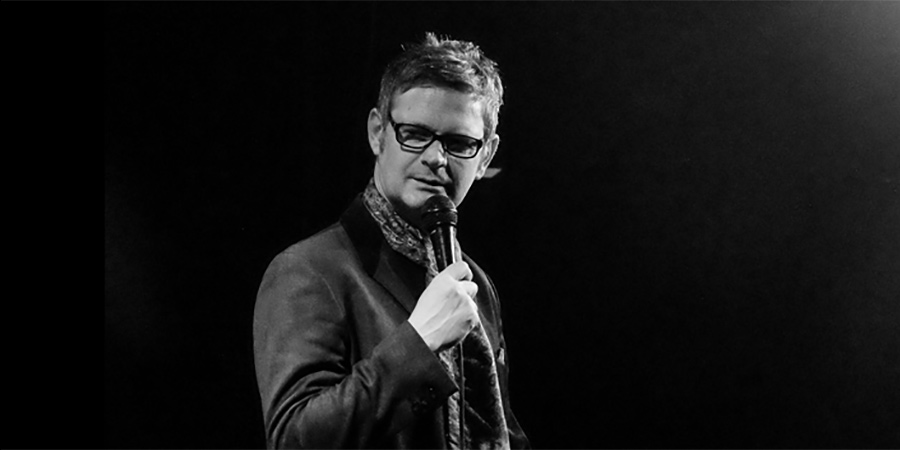
I've heard that they're well paid.
It wasn't as well paid as the Afghanistan ones but I could earn good money, two weekends worth and be in the sun for a week. I desperately needed the money. At the time I'd just left Off The Kerb, the money hadn't increased on the circuit but the travel from where I am was getting more and more expensive.
I didn't really think about it till I got there. I'd heard all the stories though. I'd heard that the entire front row had stripped naked in front of Dave Johns and all those harrowing tales. I just never considered it until I got there. And Christ, you can handle people like that in a club because they're coming into your world. But you're going into their world, a complete volte-face. And much, much more difficult to deal with because of it.
I think Iain Stirling got dry humped by a squaddie at one such gig.
I mean, most of the gigs were great. I did my first lot towards the end of the early days, when they were still done in a tent. They were really rough and ready. You were standing on crates, they were sitting on wooden benches. But over the course of the next few years, more money was invested into the decompression site for people coming back from Afghanistan and Iraq. Facilities were built and that gave it a more professional air. Because in those early days it was terrifying.
I saw on one corporate gig website that you're described as "the comedian most likely to run amok with a firearm". And you've written that in your early career you smashed a heckler over the head with a microphone. But also that you're at your most zen-like on stage. Was your temper something you had to work at?
That was an early publicity quote that has stuck around. I was once doing a corporate in Belfast and they introduced me with that, which is not what you need. They don't want to hear it and you don't want to come on with that kind of description.
But yeah, my temper was... I had to learn. Specifically with the microphone, it was a room above a pub in Wimbledon and this guy in the front row just wouldn't shut up. So I smacked him over the head.
I thought that was accepted practice because I'd seen Mickey Hutton do it at The Comedy Store the week before. But what I hadn't seen was Mickey place his hand on the head of the person he was smacking and smack the back of his hand. So I just smacked the bloke. And Off The Kerb, who were there and deciding whether to take me up to Edinburgh that year or not, told me that I wasn't ready, that I had to work on my anger issues. It was a swift learning curve, put it that way.
Death and Croissants is out now. Info & Order
This article is provided for free as part of BCG Pro.
Subscribe now for exclusive features, insight, learning materials, opportunities and other tools for the British comedy industry.

